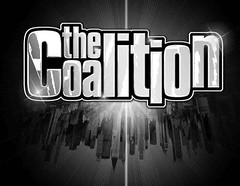« A Dialogue Too Friendly for Focus on the Family? | Home | The Adoption Matrix »
From the Frontiers of Deep Justice
By Jeremy | January 23, 2008
 Chris Brooks sparked some lively debate at his blog by excerpting Deep Justice in a Broken World. Weigh in here. Buy the book here. Here's the excerpt, from Kara Powell's introduction.
Chris Brooks sparked some lively debate at his blog by excerpting Deep Justice in a Broken World. Weigh in here. Buy the book here. Here's the excerpt, from Kara Powell's introduction.
Guess how much money you, I, the kids in our ministries, and every other American spend each year on Mint Chocolate Chip, Strawberry, Jamoca Almond Fudge, Rainbow Sherbet, just plain Vanilla, and all other ice cream flavors? Go ahead. Take a guess. $20 billion. [1] For those of you who like to see a lot of zeroes, that’s $20,000,000,000. Compare that with figures recently released by the United Nations. Providing clean water and basic sanitation for the entire world would cost $7 billion a year for the next ten years. An additional $4 billion a year for the next ten years could finance basic health care that would prevent the deaths of 3 million infants each year. [2] For $11 billion a year for the next decadeâ€â€just over half of what Americans spend on ice creamâ€â€we could give the world clean water and basic sanitation and prevent the deaths of millions of babies. But since there is no Give-Up-Ice-Cream-for-World-Health movement, odds are good that we’ll keep eating mint chocolate chip while much of the world lacks water and basic health care. Does that sound like justice? On September 11, 2001, the terrorists who hijacked four U.S. planes claimed 2,792 lives. Our entire nationâ€â€and much of the worldâ€â€was glued to radios, televisions, and the Internet, desperate to find out why and how so many had been killed. Yet on that same day nearly three times as many people were killed by HIV/AIDS worldwide. And that same number of people died from HIV/AIDS on September 12, 2001. And on September 13. And that many people have died because of AIDS every day since then. Yet as AIDS rips apart children, families, villages, and entire nations, the world remains disengaged. Tragically, so do our churches and youth ministries. Does that sound like justice? Many of us slept on comfortable mattresses last night, and with a flick of a thermostat switch, we kept our homes at temperatures we considered ideal. Last night, approximately 600,000 homeless people sought shelter on U.S. streets. [3] Making matters worse, an estimated 38 percent of those homeless persons were children. [4] Does that sound like justice? Perhaps the most alarming statistic of all is that this injustice and poverty is happening in a world in which 2.1 billion of us, or 33 percent of the world’s total population, claim to be followers of Christ. [5] Does that sound like justice? No, it doesn’t. It doesn’t sound like justice to us and it doesn’t sound like justice to author Ron Sider, who writes, “The church should consist of communities of loving defiance. Instead it consists largely of comfortable clubs of conformity.†[6] A growing number of youth ministries are alarmed by the brokenness of our world and are determined to restore justice. Some of you are partnering with faith communities of different ethnic and economic backgrounds to create job centers, food co-ops, and college scholarship funds to counter the injustice in your towns. Others of you are mobilizing kids and families to mentor under-resourced kids at your local school as well as serve as advocates at your school districts for increased funding. Still others of you are raising up groups of kids who care about the AIDS pandemicâ€â€in the United States, in Africa, and in Asia. The good news is that our hearts are in the right place. The bad news is that many of us are novices who might be doing more harm than good.
Topics: books, chris brooks, deep justice, economics, justice, kara powell, poverty | 5 Comments »

 Welcome to the professional website and personal weblog of Jeremy Del Rio. Whether you're a client, friend, or curious onlooker, please don't stay a spectator. Engage the conversation. Your contributions matter here.
Welcome to the professional website and personal weblog of Jeremy Del Rio. Whether you're a client, friend, or curious onlooker, please don't stay a spectator. Engage the conversation. Your contributions matter here.


















January 23rd, 2008 at 9:04 pm
Jeremy, when it comes to the local injustices of our cities, what seems to be the common thread nationally? What are the obvious social wounds that are being overlooked by the churchs in our own backyards. Would that be a good place for a “novice” look to serve and make a difference, in you opinion?
January 24th, 2008 at 1:08 am
Steve,
Many injustices ravage our local neighborhoods, and each communities is weighed down by different issues more than others. But a common one, at least among communities I have visited, is generational failure of public school systems to make good on the promise we tell our children that if they stay in school, they’ll be equipped with the skills they need to achieve at life. Despite those promises, generations of inner city and rural children have failed to read or do math at grade level. Education reform is a justice issue that every local church and youth ministry should champion. (For ideas how, visit http://www.2020.coalitionnyc.com.)
January 24th, 2008 at 10:21 am
This book sounds like an interesting read and of course thought provoking. I also wonder how to get involved in areas where a small community of faith can make a difference. As to educational reform Florida’s school system is horrible and many (including me) have their children in private school while others homeschool.
January 24th, 2008 at 5:55 pm
Interesting that the writers would highlight 9/11 and sounds like from the excerpt brushing it aside and pooh poohing it. One was a deliberate attack by followers of a religion.
AIDS/HIV is a preventable disease, which not to take away from the victims.
I will do the same to thsi as what the authors did to 9/11 victims.
More people die each day from cancer than HIV/AIDS. Cancer which is hereditary rips apart child, families, villages and entire nations, the world remains disengaged. Tragically, so do our churches and youth ministries. So. to put it into perspective and I am not picking on AIDS.HIV it seems a bit silly to me.
That being said I wouldnt mind giving it a read, and seeing if it offers real solutions rather than bash Christians even if it is written by Christians.
By the way using numbers from the UN is not that great, since they recently admitted inflating numbers related to victims of HIV AIDS in the world especially africa. They revised their numbers down about 20 to 25%.
Just being a devil’s advocate in here.
January 25th, 2008 at 11:32 am
FYI, P, I’m one of the authors in the book, though not the writer of the introduction excerpted above. Rest assured, I wouldn’t have participated in a project that pooh poohed 9/11 or bashed Christians. The reference to 9/11 was simply to contrast the scale of the loss of life between a day that (rightfully) changed the world and an epidemic which (wrongly) took decades to generate a global response. Why focus on HIV/AIDS rather than Cancer? Precisely because HIV/AIDS is a preventable disease. Yet where it is spreading most rapidly it spreads primarily because of a lack of education about how to prevent it.